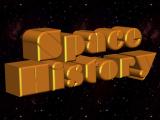If you are not already a subscriber, you are welcome to enter your email address here to sign up to receive the Space History newsletter on a daily basis. Under no circumstances will we release your legitimate email address entered here to outside persons or organizations, and it will only be used for mailing the specific information you have requested.
| Enter your email address here: |
Unsubscribe instructions are included in every newsletter issue in case you decide you no longer wish to receive it.
Note: We record the IP address from which subscriptions are entered to help prevent SPAM abuses.
Race To Space
Someone will win the prize...
... but at what cost?
Visit RaceToSpaceProject.com
to find out more!
1596
David Fabricius discovered the light variation of Mira (Omicron Ceti), making it the first pulsating variable star identified in the sky.
ref: spider.seds.org
1814
Born, Anders Jonas Angstrom, Swedish astronomer, physicist ("angstrom" is a unit of length equal to 0.1 nanometer, one hundred-millionth (10**-8) of a centimeter)
ref: en.wikipedia.org
1847
J.R. Hind discovered asteroid #7 Iris.
1861
R. Luther discovered asteroid #71 Niobe.
1898
G. Witt discovered asteroid #433 Eros.
1923
K. Reinmuth discovered asteroid #1026 Ingrid.
1925
K. Reinmuth discovered asteroid #1060 Magnolia.
1936
G. Neujmin discovered asteroids #1403 Idelsonia and #2166 Handahl.
1942
Born, Robert L. Stewart (at Washington, DC, USA), Brig General US Army, NASA astronaut (STS 41-B, STS 51-J; over 12d 0.75h total time in spaceflight)

Astronaut Robert Stewart, NASA photo
Source: Wikipedia (www.jsc.nasa.gov unavailable August 2019)
ref: www.nasa.gov
1946
Died (age 79), H[erbert] G[eorge] Wells, science fiction author (War of the Worlds, Time Machine)
ref: en.wikipedia.org
1959 18:57:00 GMT
The US Air Force launched Discoverer 5 (KH-1) into polar orbit to test launch, propulsion, communications, orbital performance, engineering, and recovery techniques. The reentry vehicle released over the Pacific Ocean the next day was not recovered.
ref: nssdc.gsfc.nasa.gov
1960
A UFO was reportedly sighted by several California law enforcement officers (the Red Bluff Police UFO Incident).
ref: www.abovetopsecret.com
1960
The first two-way voice communication via satellite took place with a voice signal bounced off Echo 1 between Cedar Rapids, Iowa and Richardson, Texas.
Following the failure of the Delta rocket carrying Echo 1 on 13 May 1960, Echo 1A (commonly referred to as just Echo 1) was successfully put in a 1519 x 1687 km orbit on 12 August 1960. The spacecraft was a 30.48 meter (100 foot) diameter balloon of mylar polyester film 0.5 mil (0.0127 mm) thick, designed and successfully used as a passive communications reflector for transcontinental and intercontinental telephone (voice), radio, and television signals. The first two-way voice communications was bounced off Echo I on 13 August 1960 between Cedar Rapids, Iowa, and Richardson, Texas. The first reported picture transmission took place on 19 August, from Cedar Rapids to Richardson.
Since its shiny surface was also reflective of visible light, Echo 1A was visible to the unaided eye over most of the Earth. Brighter than most stars, it was probably seen by more people than any other man-made object in space. It had 107.9-MHz beacon transmitters for telemetry purposes, powered by five nickel-cadmium batteries charged by 70 solar cells mounted on the balloon. Because of the large area-to-mass ratio of the spacecraft, data for calculation of atmospheric density and solar pressure could be, and was, acquired. The spacecraft was also used to evaluate the technical feasibility of satellite triangulation during the latter portion of its life. Echo 1A re-entered the Earth's atmosphere on 24 May 1968.
To communicate via Echo 1, Bell Labs created a 50-foot (15-meter) horn-shaped antenna. Later, while calibrating the antenna, radio astronomers Arno Penzias and Robert Wilson detected cosmic microwave background radiation, commonly interpreted as the first solid evidence of the Big Bang, for which they won the Nobel Prize. (See http://TheSkyIsWhite.org for a different interpretation of the CMB radiation.)
See also http://learning.blogs.nytimes.com/on-this-day/august-13/
ref: nssdc.gsfc.nasa.gov
1966
T. Smirnova discovered asteroid #2754.
1989 06:37:08 PDT (GMT -7:00:00)
NASA's STS 28 (Columbia 8, 30th Shuttle mission) ended, completing the fourth DoD Shuttle flight.
STS 28 was launched 8 August 1989. Liftoff occurred during a classified launch window lying within the launch period extending from 7:30 AM to 11:30 AM EDT.
STS 28 was the fourth Shuttle mission dedicated to the Department of Defense, and the first flight of Columbia since Mission 61-C.
STS 28 ended 13 August 1989 when Columbia landed on revolution 81 on Runway 17, Edwards Air Force Base, California. Rollout distance: 6,015 feet. Rollout time: 47 seconds. Launch weight: Classified. Landing weight: 190,956 pounds. Orbit altitude: Classified. Orbit inclination: 57 degrees. Mission duration: five days, one hour, zero minutes, eight seconds. Miles traveled: 2.1 million. The orbiter was returned to the Kennedy Space Center on 21 August 1989.
The flight crew for STS 28 was: Brewster H. Shaw, Jr., Commander; Richard N. Richards, Pilot; James C. Adamson, Mission Specialist 1; David C. Leestma, Mission Specialist 2; Mark N. Brown, Mission Specialist 3.
ref: www.nasa.gov
We are going to run out of oil!
Visit SpacePowerNow.org
to help fix the problem.
SpacePowerNow.org - For Human Survival
Please help support our efforts by shopping from our sponsors.
This newsletter and its contents are Copyright © 2006-2026 by The L5 Development Group. All rights reserved. - Publication, in part or in whole, requires previous written permission. - Academic or personal-use citations must refer to http://L5Development.com as their source. Thank you for your cooperation.
Space History Department
Resources
The L5 Development Group Home Page
The L5 Development Group Keyword Access System
Space History for August 13 /
Webmaster /
Script last modified August 23, 2018 @ 6:05 am
Copyright © 2006-2026 by The L5 Development Group. All rights reserved.
Hosted by FKEinternet



